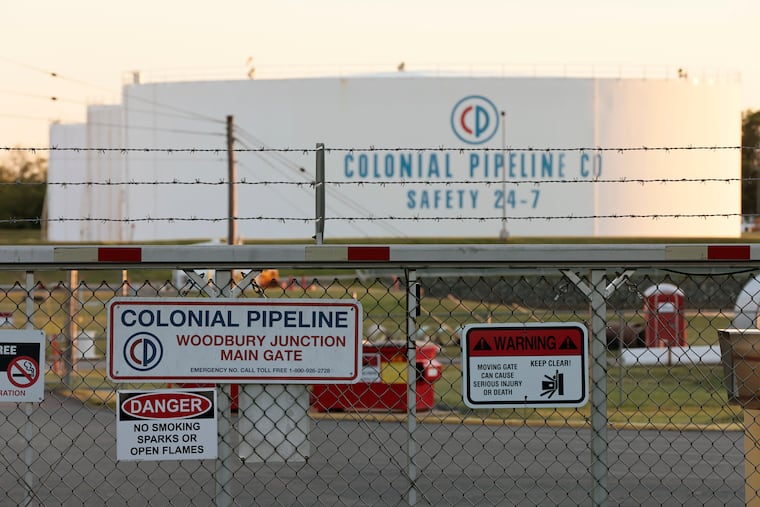Panic fuel buying is not occurring in Philadelphia. At least not yet.
'This was nearly entirely a self-induced panic, all these outages, because people overwhelm the system by pumping,' said one analyst.

The Philadelphia region has been spared from fuel shortages because it is less dependent upon gasoline delivered through the shuttered Colonial Pipeline than are Southeastern states, where panicked motorists have emptied gas stations of supplies, energy analysts said Thursday.
As The Inquirer reported on Monday, the Philadelphia region is supplied with motor fuel from multiple sources, including local refineries and foreign imports into New York harbor terminals. Though four Philadelphia-area refineries have closed or curtailed operations in the region in the last decade, large amounts of storage capacity remain to help ease supply interruptions.
“The Colonial Pipeline does not supply Philadelphia to the degree of the Southeast,” said Patrick DeHaan, head of petroleum analysis for GasBuddy. “So it’s not a big issue and Philadelphia has alternative supplies, including several refineries.”
The operator of the Colonial Pipeline, which connects Gulf Coast refineries to 13 states between Texas and New Jersey, resumed operations Wednesday night after an attack by a gang of hackers forced it to shut down on Friday. Deliveries had resumed on Thursday, it said, and will take several days to return to normal.
The average gas price in Philadelphia increased 2 cents overnight and was $3.12 a gallon on Thursday, up 7 cents in a week, according to AAA. In South Jersey, the average was $3.03 Thursday, up 3 cents overnight and up 8 cents in the last week.
“We can’t stress enough: Do not panic, we have enough gas,” said Kathleen Zinszer, a spokeswoman for Mid-Atlantic AAA.
Zinszer said AAA has not heard of any reports of price-gouging or shortages in the Philadelphia area, though such activity has been reported in Virginia. The New York Attorney General on Thursday warned gas station owners that it was illegal to jack up prices.
Fuel prices had been trending higher for four months — they were up 7 cents in the week before the pipeline closure, largely due to a revival in the economy emerging from the year-long pandemic lockdown, DeHaan said.
DeHaan said the shortages in Southeastern states such as Georgia, Tennessee, and the Carolinas are entirely created by panicked motorists, filling up their vehicles as well as spare tanks with fuel. Some motorists were even filling plastic bags with gasoline, which officials immediately warned consumers to avoid at all costs.
DeHaan said only two out of 25 suppliers in Charlotte, N.C., on Thursday were out of fuel. But 75% of fuel stations were empty. Distributors are simply unable to fill up tank trucks quickly enough at the local Colonial Pipeline depot to resupply fuel stations.
“That tells me this was nearly entirely a self-induced panic, all these outages, because people overwhelm the system by pumping,” he said. “I mean, come on, plastic bags?”
Fuel stations experienced 40% to 60% surges in demand. “It’s like a hurricane, there’s just no way that stations can keep up,” he said.
The AAA’s Zinszer, who was speaking by telephone from North Carolina’s Outer Banks, where she said most stations are out of fuel, also cited reports that fuel distributors were short on truck drivers to deliver fuel.
“We’ve got the gas,” she said. “We just need to get it to the stations.”